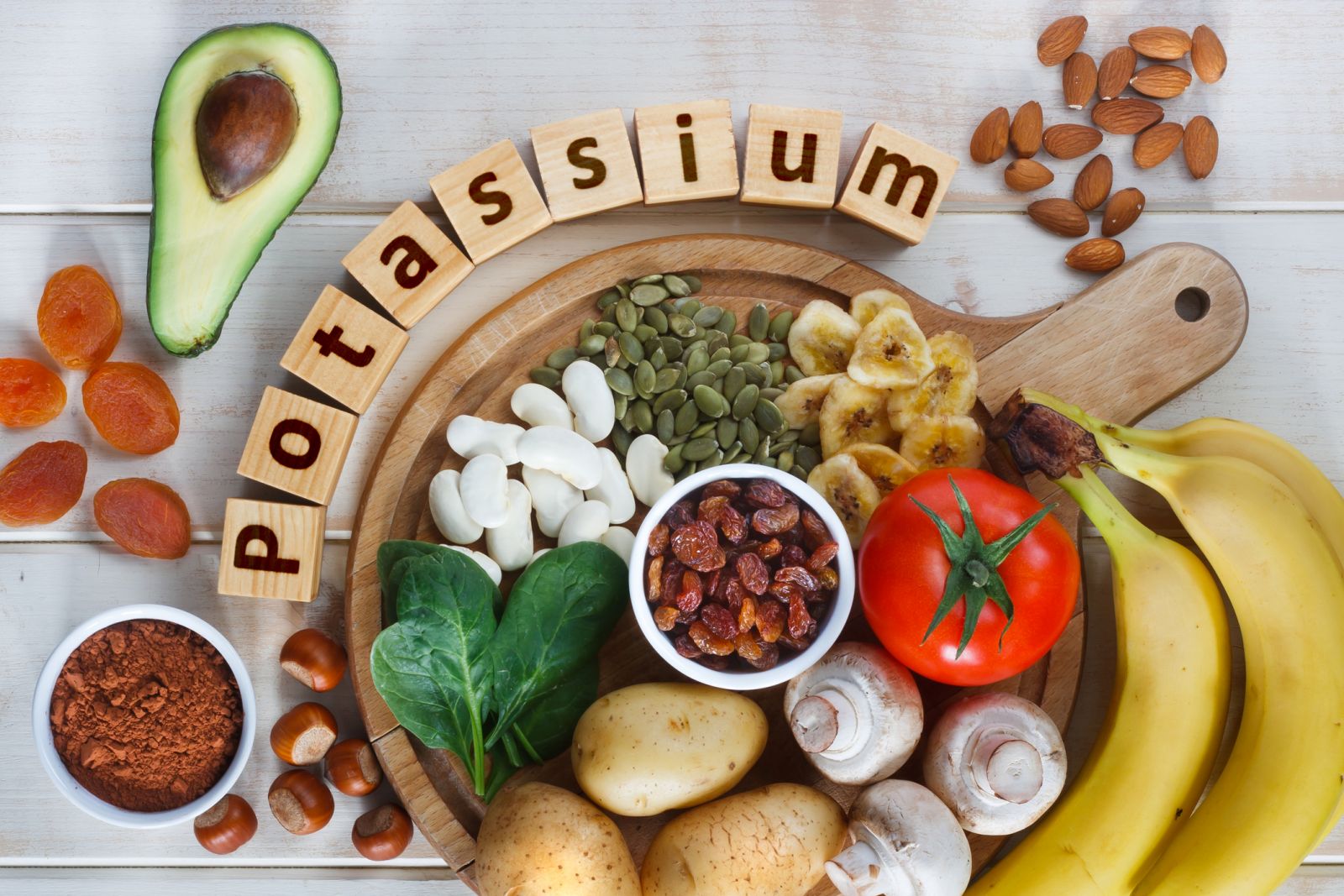In the right amounts the mineral potassiumhelps your nerves and muscles talk to each other moves nutrientsinto and waste out of your cells and helps your heartfunction. 98 of the potassium in the body is inside the cells.
Potassium is necessary for.

Potassium in human body. Roughly 98 of the potassium in your body is. It also helps regulate heartbeats. The total amount of potassium in the adult body is about 45 millimole mmolkg body weight about 140 g for a 175 pound adult.
Among the many functions of potassium in the body are regulation of the heartbeat and the function of the muscles. What is the bodys normal potassium level. The human body needs potassium to support key processes.
The proper level of potassium is essential for normal cell function. Potassium is a mineral and an electrolyte which conducts electrical impulses throughout the body. Thousands of years ago when humans roamed the earth gathering and hunting potassium was abundant in the diet while sodium was scarce.
Potassium is the major positive ion cation found inside of cells. It helps the body regulate fluid send nerve signals and regulate muscle contractions. Replacement of potassium has been said to eliminate the risk of dysrhythmias 4749.
1 Though the words salt and sodium are often used. Most potassium resides intracellularly and a small amount is in extracellular fluid 2-4. These nutrients are essential for the smooth-functioning of the kidneys.
Therefore we need to take this mineral from foodsdrinks or alternatively from potassium supplements. Potassium plays a role in the function of the kidneys the heart the muscles and the transmission of messages through the. While the average person consumes about 3500-4500 mg of potassium per day this is way too much for someone with hyperkalemia.
What we should also know is that the human body cant produce potassium on its own. Potassium also helps in controlling various enzymatic reactions and the metabolism of carbohydrates. Role of Sodium and Potassium in the Body The sodium-potassium pump is necessary for the creation of the chemical battery or electrical potential gradient that helps the transmission of nerve signals as well as contraction of muscles.
Potassium is one of the bodys electrolytes which are minerals that carry an electric charge when dissolved in body fluids such as blood. Electrolytes are substances that help conduct electricity in your body. 80 of this is in muscle cells and 20 is in bones liver and blood cells.
It performs a range of functions in our body including maintaining the rhythm of the heart controlling the nerve impulses and the muscles. What Is the Purpose of Potassium in the Human Body. Normal potassium levels in the human body range between 35-50 mEqL 1365-195 μgml.
1 mmol 1 milliequivalent mEq or 391 mg potassium 3. Potassium is necessary for the normal functioning of all cells. See also Overview of Electrolytes Most of the bodys potassium is located inside the cells.
Potassium is the third most abundant mineral in the body 5. A balance of sodium and potassium is important for your bodys electrolyte functions. It regulates the heartbeat ensures proper function of the muscles and nerves and is vital for synthesizing protein and metabolizing carbohydrates.
Electrolytes assist in essential body. The chemical notation for potassium is K. Changes in potassium metabolism supposedly cause electrical instability in the heart cardiac dysrhythmias and increased mortality.
Potassium is the third most common mineral in our body. Potassium is also an electrolyte or at least acts as an electrolyte in the body. However consuming too little potassium and too much sodium can raise your blood pressure.
Consume less than 2000 mg of potassium per day. Potassium and sodium are electrolytes that help your body maintain fluid and blood volume so it can function normally. It helps the body manage fluids send nerve signals and regulate muscle contractions.
Anything lower than 35 mEqL is called hypokalemia which can cause a lack of energy muscle cramps stomach disturbances and irregular heartbeat. Potassium is one of.



